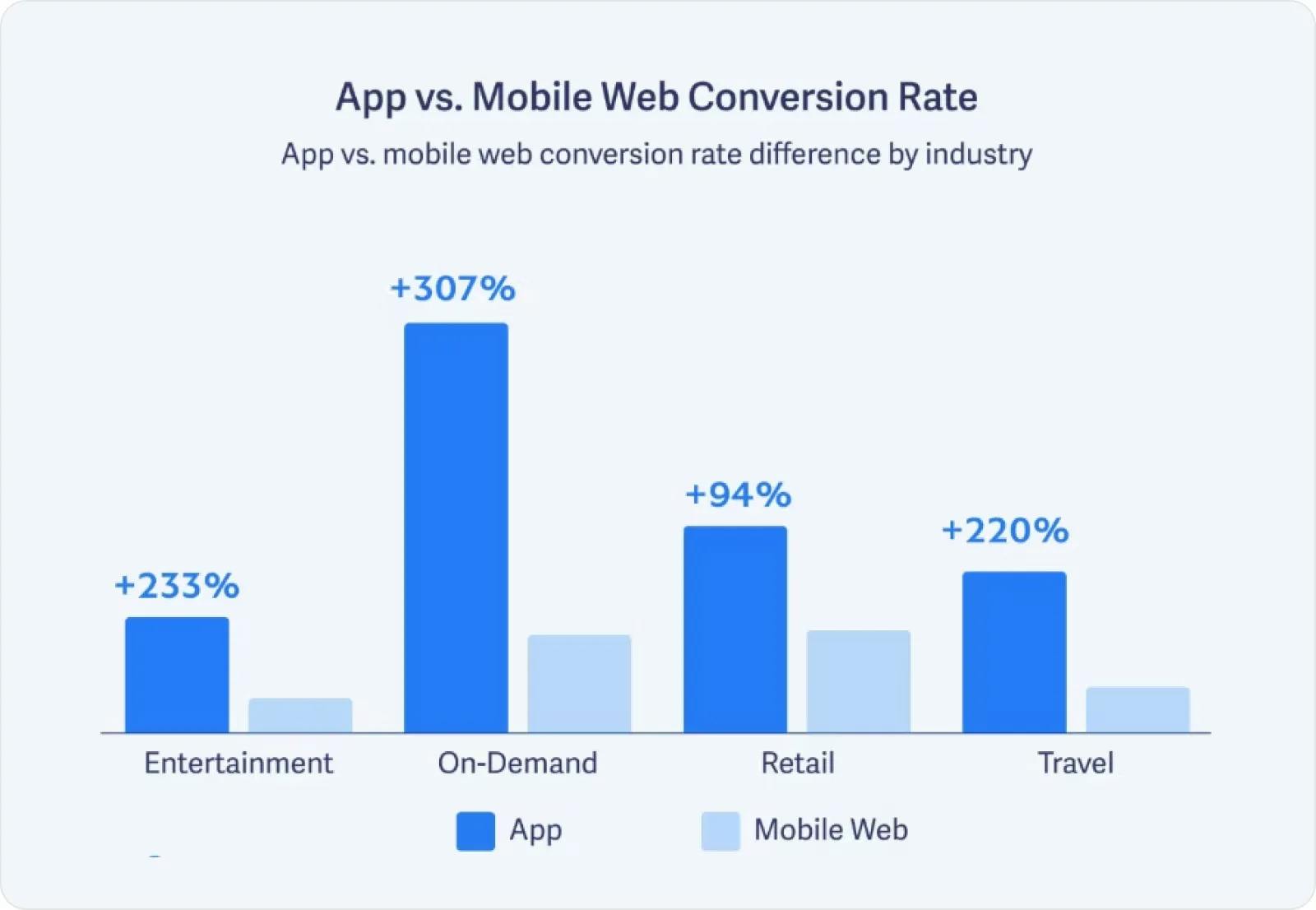W ith more customers turning to their phones for everything from online shopping to writing product reviews, there’s no better time to consider developing a business app that can boost your growth.
Increased engagement with your customers, growth in sales and new revenue streams are just a couple of potential benefits that an app can offer. To find out more pro tips about getting one developed, we chatted with several experts. This guide will look at the benefits you might reap from getting your own app and some tips on creating one.
Join Our Small Biz Community of 1M+ Entrepreneurs, Hustlers, and Dreamers.
Small Business Resources that Keep You Moving Forward.
Subscribe Now

Benefits of Having a Business Application
There are plenty of benefits to having a business mobile app . With people spending more time on mobile phones than ever before, it’s undoubtedly the perfect target for increasing sales and customer loyalty.
While you might initially put a lot of time, money and effort into your website, there is a growing trend towards mobile apps and the greater benefits they can bring to your customers and business.
According to our experts, the main benefits of mobile apps for business include:
- Increased customer engagement
- Strengthened customer loyalty
- Higher sales and revenue
Let’s take a deeper look at these benefits for your business in the long run.
1. Increased Customer Engagement
One of the main reasons you should look into developing a mobile app for your business is to increase customer engagement. Having an app allows customers to connect to your brand at any time of the day and anywhere across the globe.
And according to statistics gathered by OptinMonster , mobile shopping is booming. They found that 67 percent of users admitted to window shopping on their smartphones for fun and almost 50 percent of people use their phones for shopping. This means that customers are using their mobile devices to browse and engage with brands around the clock.
Tristan Harris, senior marketing manager at Thrive Agency , says, “In addition to connecting, your customers want to remain connected for as long as possible. Furthermore, they want to be entertained wherever they are.” This makes a mobile app the perfect way to hold your customers' attention and increase their engagement with your brand at any moment.
“As of now, SMS technology and customer phone calls are no longer sufficient,” explains Harris. Mobile apps are more readily available for people, and they can be more interactive depending on the user’s desires.
In fact, Kavin Patel, founder and CEO of Convrrt , says, “When compared to roadside banners or billboards, social network ads and email marketing, in-app purchases, ads and promotions have a stronger influence on the customer.”
2. Strengthened Customer Loyalty
Another related benefit of having a mobile app for business is to strengthen customer loyalty . While apps can increase immediate engagement, they also help you retain customers and have them coming back again and again.
Tim Clarke, director of sales at SEO Blog , says, “Mobile apps can assist you in making your customers feel extraordinary and treated privately.” Depending on what features you include on your app, you can make it a very personal experience and something that keeps them engaged for the long term.
For example, according to Clarke, “They can remember settings, keep wish lists, show tips, have commitment or loyalty programs, tailor services or content based on their curiosity, etc.” This all enhances the customer experience and ensures they’ll return.
Another app feature that can help increase customer loyalty is push notifications. Eric Netsch, CEO of Tapcart , states that “push notifications drive 92 percent of engagement.” This can help remind your customers of sales, pre-sales on their favorite items or new arrivals. All these mobile app features help to turn your customers into loyal followers more than other marketing tools.
3. Higher Sales and Revenue
You might be wondering, does all that added customer engagement and loyalty actually increase sales and revenue though? Well, the experts and research says that it does.
According to SERPWatch , consumer spending on apps grew by 32 percent in the third quarter of 2020 alone, with mobile apps projected to generate more than $935 billion in revenue by 2023.
This massive growth in what is being termed m-commerce is what you can tap into with your own mobile app for business. Even more so, new studies show how apps convert more customers than web browsers.

The combination of increased customer engagement and long-term customer loyalty, which mobile apps help foster, almost always leads to bigger sales. Most of us are spending more time on our phones and less time on a desktop computer, meaning that mobile shopping is taking over as the leading online shopping source.
BuildFire found that, on average across different industries, mobile apps converted at a 157 percent higher rate than mobile websites. This all comes down to the benefits outlined above, including the increased connection with customers, better personalization of the shopping experience and higher level of convenience for users.
What to Know About Creating a Mobile App for Business
If you’re convinced that you need a mobile app for your business, then you might be feeling overwhelmed with where to start. It can be a costly and complicated process; however, if you know how to get started, it’s more likely to be a smoother experience.
Here are some tips for creating a business app:
- “Thoroughly research your potential customers, including their needs, where they live, what they like, etc.,” recommends Harris. This way, you can develop or improve your app to suit your customers.
- Think about the different features your ideal app might need, including personalized customer features such as being able to keep wish lists, like products, leave reviews, receive push notifications, etc.
- You can use a mobile app builder like Tapcart , which can easily turn your Shopify store into a mobile app without you needing to learn coding within a matter of weeks.
- Consider the different avenues for app building, including DIY, professional developers or a mobile app building company like Tapcart.
- Focus on user experience and a user-friendly interface that will help retain people on your app.
- “Anticipate dropping down some cash,” says Clarke. It can be a costly experience, especially if you opt for a professional developer. However, it’s worth dedicating some of your marketing budget to doing it right because it can pay off in the long term.
- Reach out and speak with other small businesses that have successfully launched an app and learn from their experience.
Embracing the Rise of M-Commerce
Without a doubt, mobile commerce is becoming one of the biggest trends across most industries. Consumers are spending more of their time on phones than ever before. This means that creating a mobile app is a smart business move.
In return, customers are more likely to be loyal and spend more than they would through other sales avenues. With some in-depth research and budget dedication to developing a mobile app, your business will more likely thrive in the ecommerce world of the future.
Join Our Small Biz Community of 1M+ Entrepreneurs, Hustlers, and Dreamers.
Small Business Resources that Keep You Moving Forward.
Subscribe Now







